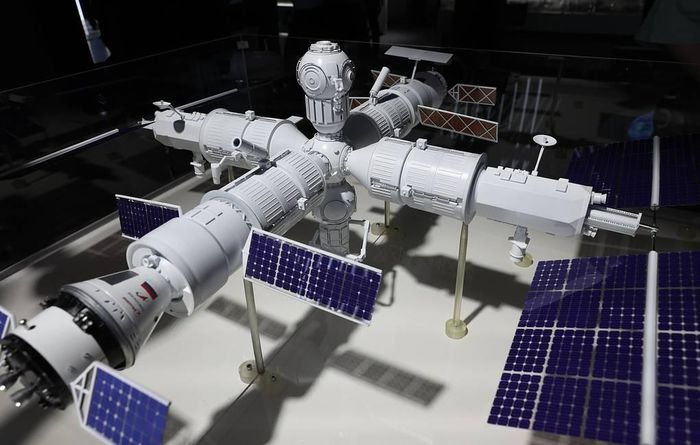Revealing the design of Russia's future space station
The Russian space agency (Roscosmos) has approved the preliminary design of the future orbital station (ROS).
'The preliminary design of the orbital station has received approval from the state corporation Roscosmos,' said a statement from the Russian Space Agency.

Roscosmos and its main contractors are in the process of signing government contracts to build the future space station.
Roscosmos emphasized that the ROS space station will serve as the basis for Russia's national space program when
(ISS) stopped working. The station's core module will have 6 connection ports to pair additional modules. Each module of the station can be replaced if necessary, so the operating life of ROS can last decades.
The ROS station will be in a polar orbit with an inclination of up to 97 degrees.
'This will provide an overview of the entire Earth's surface, including the strategically important Northern Sea Route. Currently, astronauts on the ISS can only see about 60% of the Earth's surface, and only 10% of it is Russian territory,' Roscosmos said, adding that the polar orbit will ensure communication Stable with ground control agency.
Roscosmos said heavy-duty generator sets are one of ROS's main strengths. They will allow testing to perfect the necessary high-power instruments, radars and antenna systems. The gyroscope system will keep the station in orbit without the use of engines, thereby significantly reducing fuel consumption.
According to previous reports, the deployment of the ROS station is expected to be carried out between 2027 and 2032.
'First, the research, power supply and air node modules will be launched into space. The base module will take over the control functions of the station. Other modules will be added later,' Roscosmos said.
Unlike the ISS, Russia's ROS station can operate without astronauts on it.
The idea of creating Russia's own space station gained attention in April 2021. In October 2023, Roscosmos CEO Yury Borisov said the cost of this project is estimated at 609 billion rubles (about 6.6 billion USD at current exchange rates) until 2032, of which that amount 150 billion rubles will be spent in the first 3 years. The project opens up the potential for international cooperation as African and BRICS countries have been invited to participate.
You should read it
- ★ You are about to be able to travel to the International Space Station in 2021 if ...
- ★ The 7 largest objects people ever launched into space
- ★ Stunned with images of three major storms in the ocean recorded by the ISS space station
- ★ The Russian astronaut announces to find extraterrestrial life on the ISS Space Station
- ★ What's special about supercomputers that survived 1 year on ISS International Space Station?